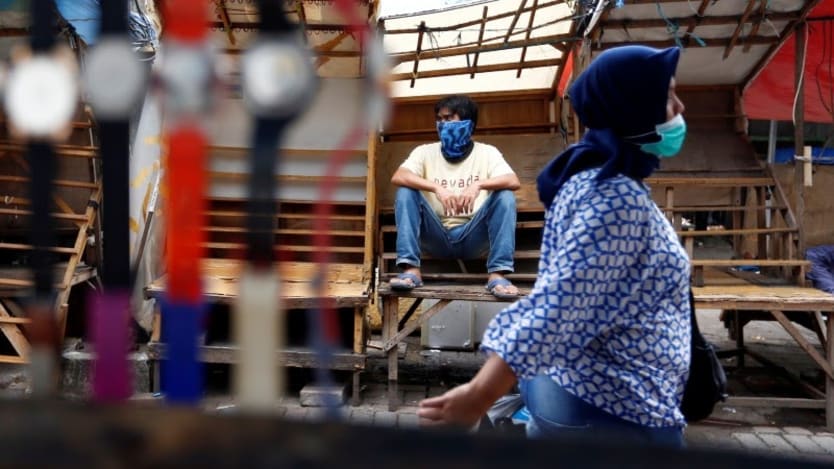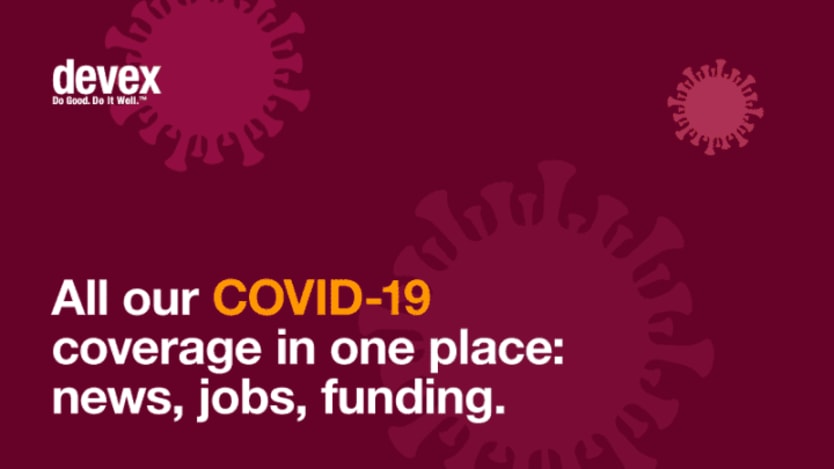
Since the start of the COVID-19 pandemic, leading development organizations, ranging from Save the Children to the World Economic Forum, have consistently called for a “new social contract” that extends well beyond the crisis.
In July, United Nations chief António Guterres similarly urged an effort that will “create equal opportunities for all and respect the rights and freedoms of all,” when he delivered what experts have since called a stump speech for his reelection campaign.
“This is the only way that we will meet the goals of the 2030 Agenda for Sustainable Development, the Paris Agreement, and the Addis Ababa Action Agenda — agreements that address precisely the failures that are being exposed and exploited by the pandemic,” Guterres said.
But what, in reality, would a new social contract between governments and societies actually look like? And how far away is the achievement of anything that matches this grand ambition?
A recent half-day forum on inequality and COVID-19, co-hosted by the Overseas Development Institute and Irish Aid, presented some tangible ideas for what sweeping social, economic, and political reform might mean. There isn’t one easy answer, according to Francesca Bastagli, director of ODI’s equity and social policy program.
“It will mean different things to different people in relation to the allocation of responsibility and entitlement and rights across the government or the state, citizens and workers, business and the private sector,” Bastagli told Devex. “The way you split things up can vary, but it is the binding set of relations that include the rights, responsibilities, but also a sense of trust and cohesion that bind to society.”
Bastagli added that “there is a very clear message coming through that unless we do something about it — and right away — there is real risk these inequalities worsen.”
“We need to change the business model, including who governments are accountable to and what they are accountable for.”
— Sharan Burrow, general secretary, International Trade Union ConfederationThe call for a new, long-term social contract comes from a recognition that present ways of developing policy and executing financing are broadly not working, experts said during the forum. And while the pandemic has exposed and exacerbated this problem, it is not solely responsible for rising levels of global inequality.
“Even before COVID, we had massive, historic inequality, as well as a climate emergency,” said Sharan Burrow, general secretary at the International Trade Union Confederation, during a session at the ODI forum Wednesday.
A total of 300 million jobs have been formally eliminated during the pandemic, and an additional 1.6 billion people in the informal sector have lost their jobs, she said. Approximately 75% of people have little or no social protection to help buffer the impacts of their unemployment, according to Burrow.
And while women have been at the center of crisis response, they remain overrepresented in informal employment in low- and lower-middle-income countries. Globally, nearly half of women are employed in medium- to high-risk sectors, according to the International Labour Organization. Other setbacks for women during the pandemic, such as an increase in unpaid child care and a rise in gender-based violence, are harder to quantify.
“That is not a basis for resilience; it is a scandal. We need to change the business model, including who governments are accountable to and what they are accountable for,” Burrow said.
The U.N. has called for plans to build stronger, equity-focused health systems and to strengthen social protection and public services. A jobs-intensive recovery that is people-centered, but also environmentally sustainable, is another part of this longer-term reform. An additional component is gender-responsive economic policies.
After the pandemic: How will COVID-19 transform global health and development?
We asked 21 leaders and big thinkers to share their insights and predictions for how the COVID-19 crisis might transform the fields of global health and development. Here is what they said.
A new social contract could also extend to issues of taxation and social security, according to Bastagli. Prioritizing noncommunicable diseases — a risk factor for people who contract COVID-19 — is a health systems concern that should continue to receive attention even once the worst of the pandemic has passed, said Fiona Samuels, a senior researcher at ODI.
“There are immediate needs during COVID, but one should not lose sight of the longer term perspective. In the big sense, we need to plan for the longer term as well and to not lose sight of these issues, because they can only get worse if they are not dealt with,” Samuels told Devex.
There have already been an “unprecedented number of announced adjustments or reforms” at the government level to respond to the pandemic’s immediate health impacts, as well as its economic and social effects, according to Bastagli.
“The question that remains is: What is being delivered and practiced beyond the stated commitment, and how adequate and effective is this response — and is it sustainable over time? One-off or two-time payments, for example, will probably require more structural, fundamental reforms to maintain that we are going to need to work towards,” Bastagli said.









